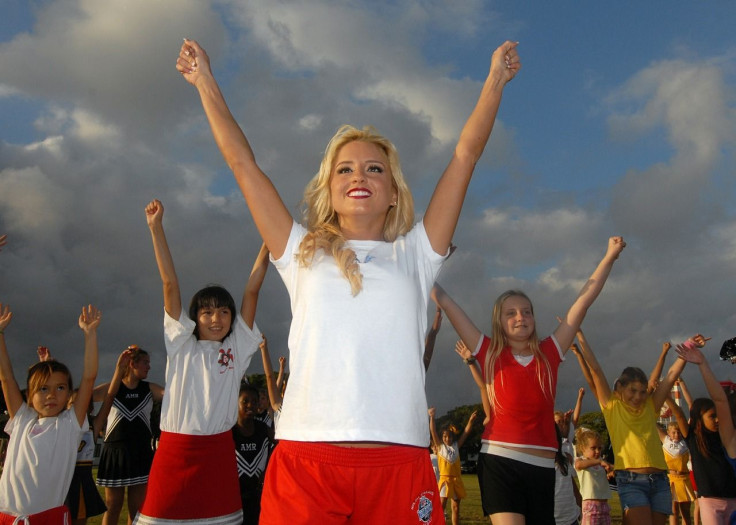Mixed-Sex Cheerleading Has The Power To Challenge Gender Stereotypes: Study

There are few sports that conjure as much of a gender bias as do cheerleading and football. Often performed together, the former is highly feminized and the latter masculine. When you think of a cheerleader, you probably imagine a blonde sorority girl in a skimpy outfit; football players, meanwhile, are expected to be big, muscular dudes.
It’s surprising then, that researchers from the University of East Anglia (UEA) in the U.K. believe that cheerleading holds the power to challenge gender stereotypes. In their recent study, the researchers examined how mixed-sex sports — particularly cheerleading — could transform students’ views about gender.
“It seems imperative to consider how the sport can be shaped in socially progressive ways,” Dr. Amy Pressland, an author of the study, said in the press release. “Cheerleading is very much viewed as an activity for girls, a safe activity where they can remain girls and women. We were really interested in what happens when boys and girls take part in it together, for boys in terms of their masculinity and how the gender relationships work within the team.”
In the study, the researchers analyzed four cheerleading teams — one national-level competitive team that wasn’t associated with a university, and three university teams (two of which were mixed-sex stunt groups, and one of which was an all-girls dance group). Interestingly, they found that in the mixed-sex groups, male cheerleaders were respectful of their female fellow athletes and tended to place importance on teamwork. For example, when asked whether they felt uncomfortable about doing “feminine” things like wearing sparkles, they reported that they did it for the team.
“For the boys the team was of most importance, more than the masculinity,” Pressland said in the press release. “If it was important to the team they would do it. From the girls we got contrasting views. Those in the dance team did not think the boys added anything, from their perspective they were as strong as the boys. Other girls were very pro-men being in the sport and for making it more inclusive and welcoming for both genders.”
Focusing on changing the stereotypes of an often sexualized and feminized sport like cheerleading, and offering men the chance to participate as well as challenge societal pressure to be masculine, could be an interesting way for schools and sports teams to help transform gender viewpoints in young people.
“We think this would be a fantastic, inclusive activity for young people to work together at and a place where gender norms could be challenged and played with, particularly as sport becomes very segregated when young people get to a certain age, for example when their bodies are developing,” Pressland said in the press release.
Source: Priyadharshani E, Pressland A. Doing femininities and masculinities in a ‘feminized’ sporting arena: the case of mixed sex cheerleading. Sport in Society: Cultures, Commerce, Media, Politics. 2015.



























